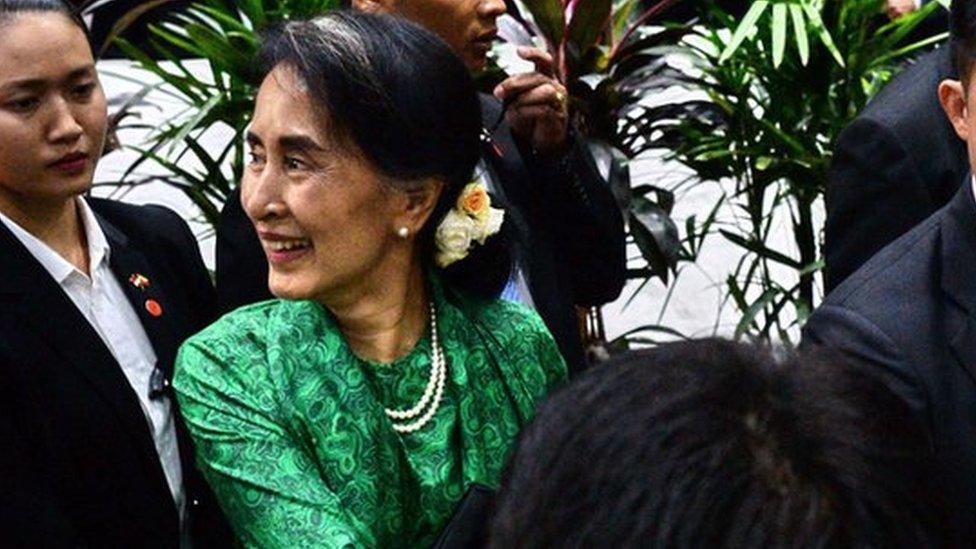Rohingya crisis: Why aid is slow to reach refugees
- Published
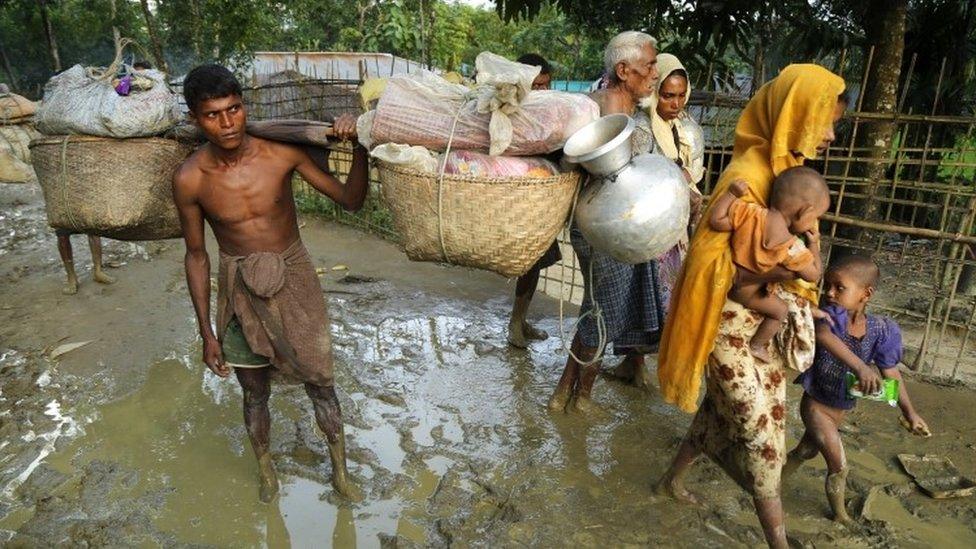
Almost 400,000 Rohingya refugees have entered Bangladesh since recent violence erupted in Myanmar
You expect chaotic scenes at the beginning of a refugee crisis of the scale we are seeing here in south-eastern Bangladesh.
But almost two-and-a-half weeks later, the beginnings of an organised response should have at least started to emerge.
We are not seeing that here in Cox's Bazar, where many Rohingya fleeing Myanmar have ended up.
The C-130 transport aircraft loaded with food and shelter have not been landing at the airport; you don't see aid trucks loaded with tents and water-purifying units lumbering along the busy roads.
Indeed, one of the most shocking things among all the horror here is that fact many Rohingya say they have had no contact with any aid agencies or international aid bodies at all.
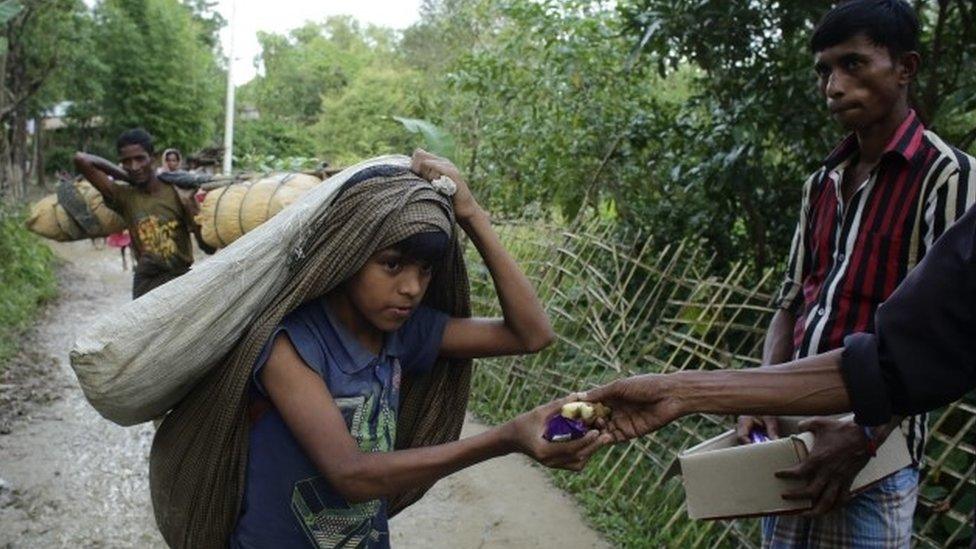
Well-meaning Bangladeshis are doing what they can to help the newcomers
Many say they have had details - their names and the villages they are from - taken at the border. After that, they have been on their own.
Virtually all the squalid shelters you see in the vast makeshift cities that refugees are hacking out of the scrub in the low hills are built and paid for by the refugees themselves.
A thriving new economy has grown up beside the roadside. Stalls sell freshly cut bamboo poles and flimsy black plastic sheets to the refugees.
If you don't have money, you don't get anything.
Tens of thousands of people have been sleeping out in the open despite the monsoon rains.
Food is in short supply. Huge crowds appear around the trucks from which well-meaning Bangladeshis throw food and clothes down into seething masses.
I've seen children and old people being trampled in the chaos.
That is not to say that nothing is being done. All the main aid agencies and international bodies are here.
On the record they are diplomatic. They will admit that lots of people are not getting the help they need and will concede that the organisation of the relief effort could be better.
But speak to them off the record and you get a different story. They say they are frustrated by the lack of co-ordination and the restrictions imposed by the Bangladeshi government on how they can operate.
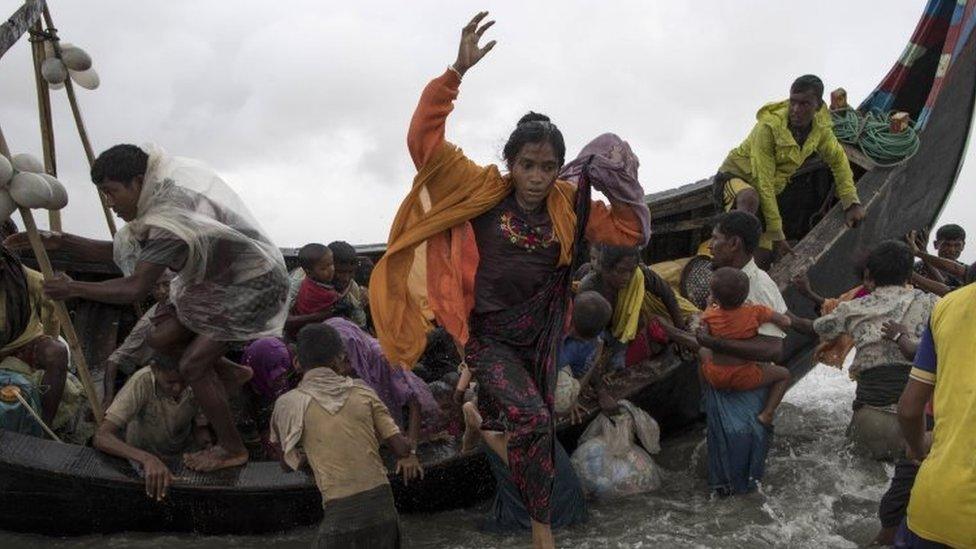
The latest huge exodus of Rohingya has left Bangladesh "beyond saturation point"
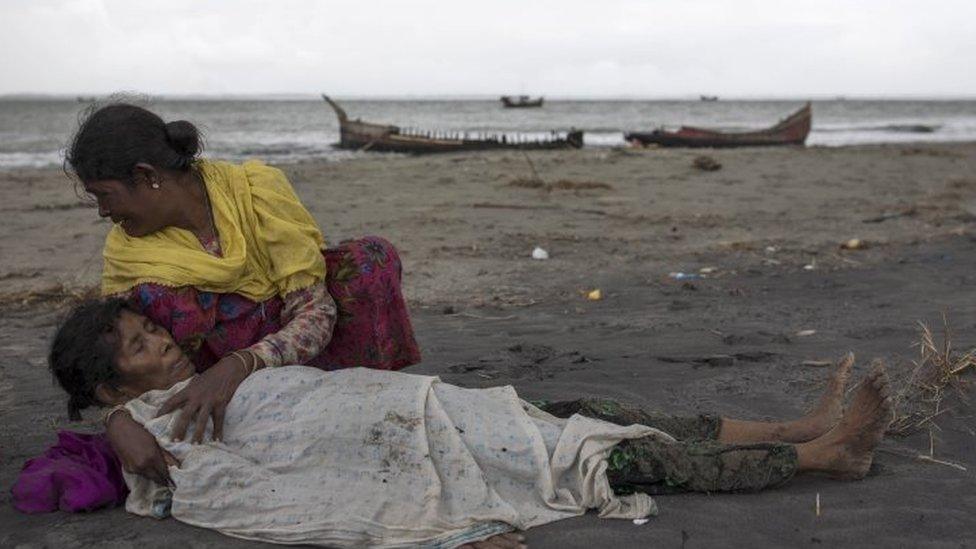
Here an elderly Rohingya woman is comforted after the wooden boat they were travelling in crashed and tipped everyone out
The most obvious example is the treatment of the United Nations' main refugee body, the UNHCR.
According to a longstanding order, the UNHCR can only operate in two official refugee camps, Kutupalong and Nayapara.
Both camps have been established for many years and were home to some 20,000 to 30,000 Rohingya who fled Myanmar in earlier waves of migration.
The UN says that since this latest huge exodus of Rohingya began on 25 August, the population of the camps has reached 70,000 - "beyond saturation point".
So all the rest of the 400,000 or so new refugees are outside the camps and - according to the Bangladeshi government's rules - the UNHCR cannot work with them.
It is an extraordinary situation.
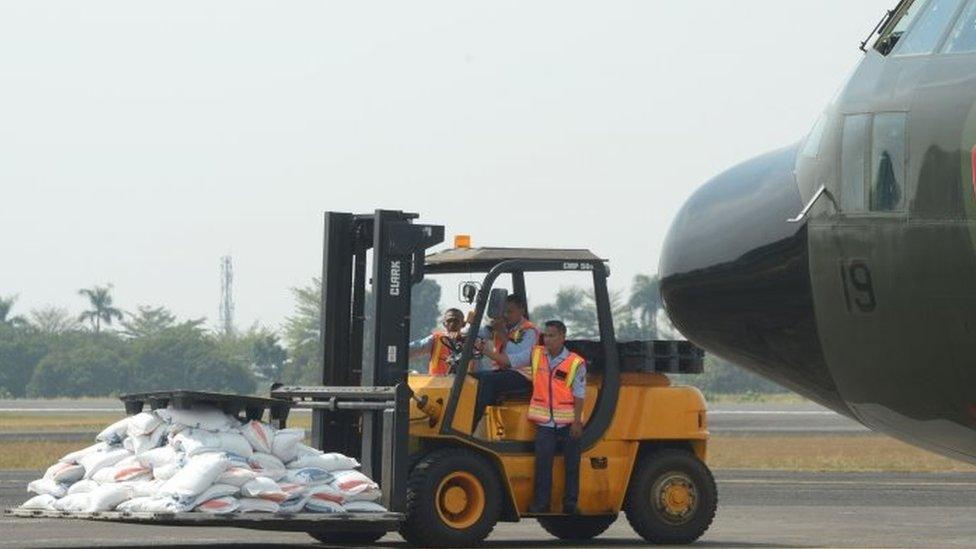
Aid for the Rohingya is being sent from Indonesia (above) and other countries, but agencies say it is not getting through
On Tuesday the UNHCR announced it was beginning a huge airlift of aid - two large cargo planes carrying family tents, blankets, jerrycans, sleeping mats and other essential items.
It says it will be enough to meet the immediate needs of 25,000 refugees and that further flights are planned, bringing emergency aid for some 120,000 refugees in total.
Yet, as things stand, the UNHCR has no authority to deliver these essential supplies to the people who need them.
So why is the Bangladeshi government making it so hard for organisations like the UNHCR to do their job?
The country faces an agonising dilemma.
Many Bangladeshis know just how awful it is to be exiled.
More than 10 million people fled the country during the bloody civil war in 1971, which led to the creation of the independent nation of Bangladesh from what had been East Pakistan.
It wants to help these fellow Muslims who have suffered such terrible persecution.
But it also knows the refugees will be a huge burden for what is one of the poorest and most densely populated countries in the world.
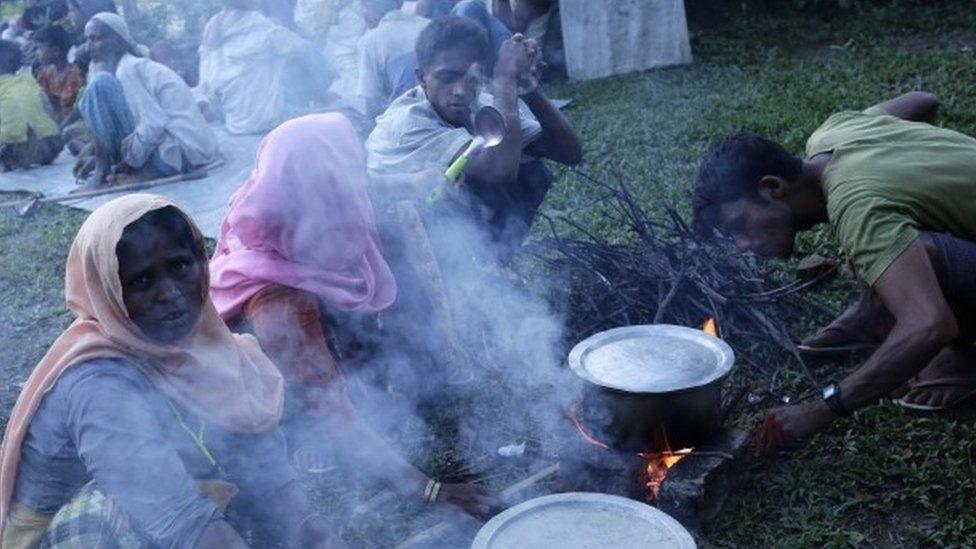
Many refugees say they have had no contact with any aid agencies or international aid bodies at all
And do not forget that these are not the first Rohingya refugees who have sought shelter in Bangladesh. There were already 400,000 here, according to Bangladeshi government estimates.
So while the government wants to offer help and support, as the Bangladeshi prime minister said on Tuesday, it does not want to make life too easy for the refugees for fear that more will be encouraged to cross over.
The strategy carries risks - and not just for the refugees who suffer as a consequence. So far the world's opprobrium has been focused on Myanmar.
But if the scenes of misery and despair we have been seeing from here continue, very soon it could be Bangladesh that finds itself at the sharp end of the world's disapproval.
- Published13 September 2017
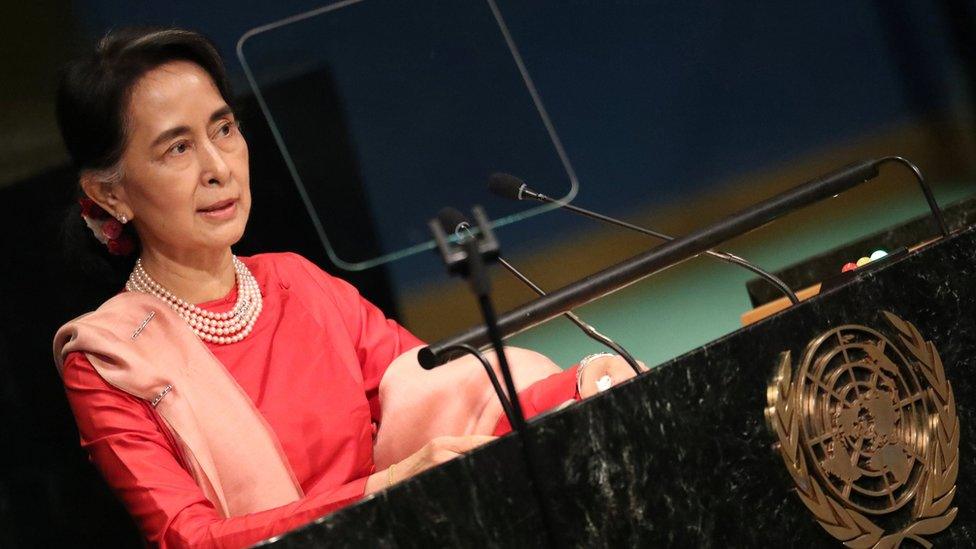
- Published12 September 2017
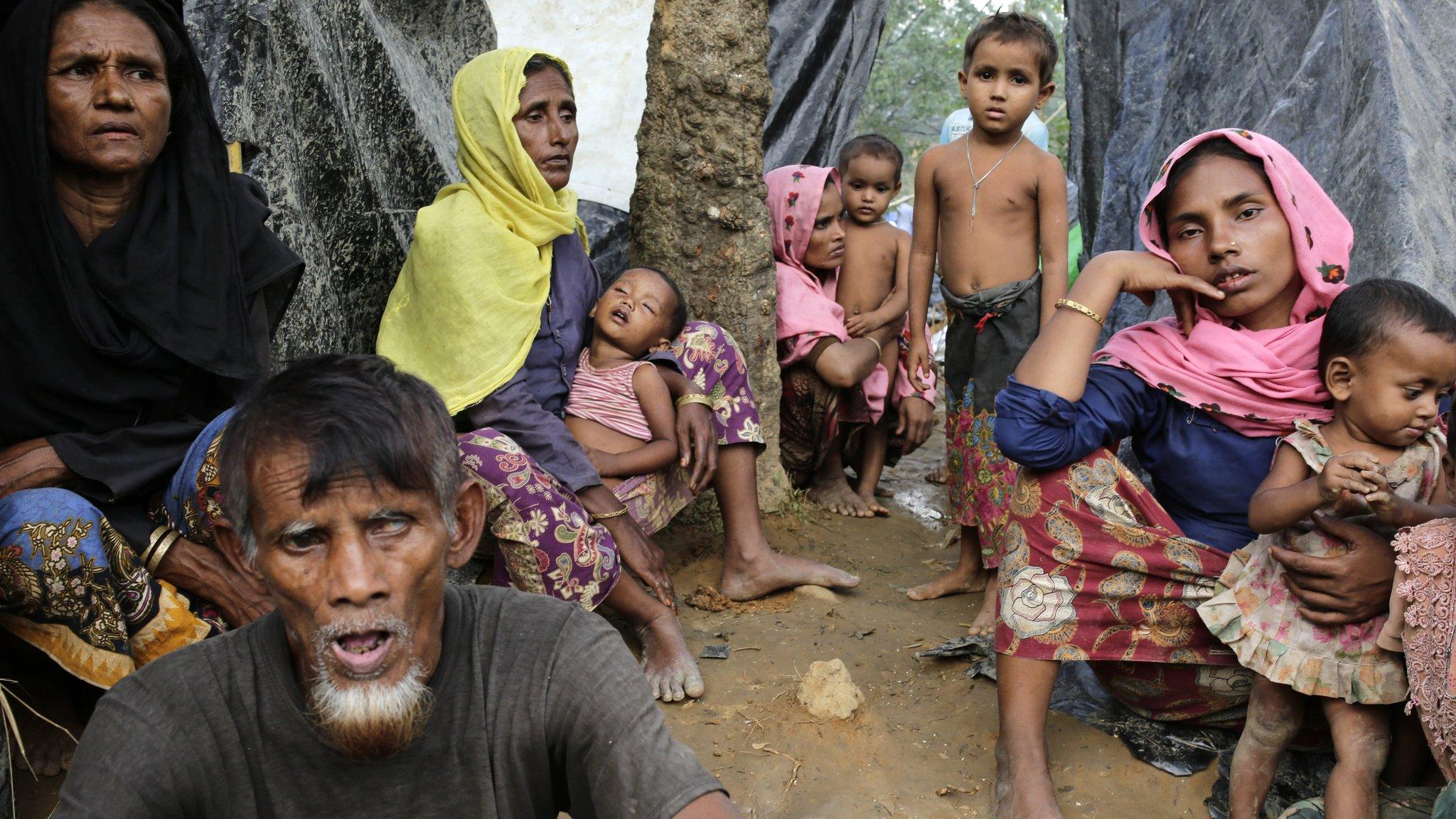
- Published11 September 2017
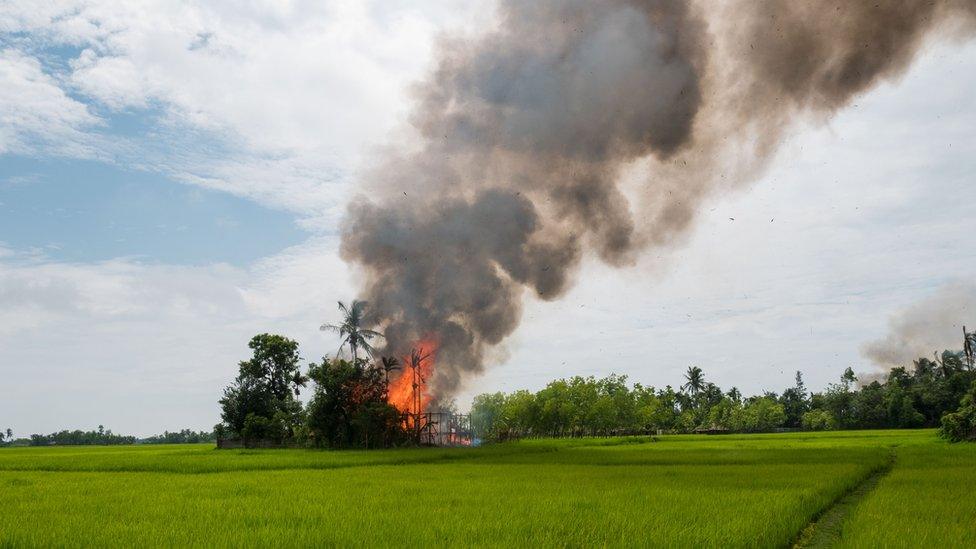
- Published19 September 2017
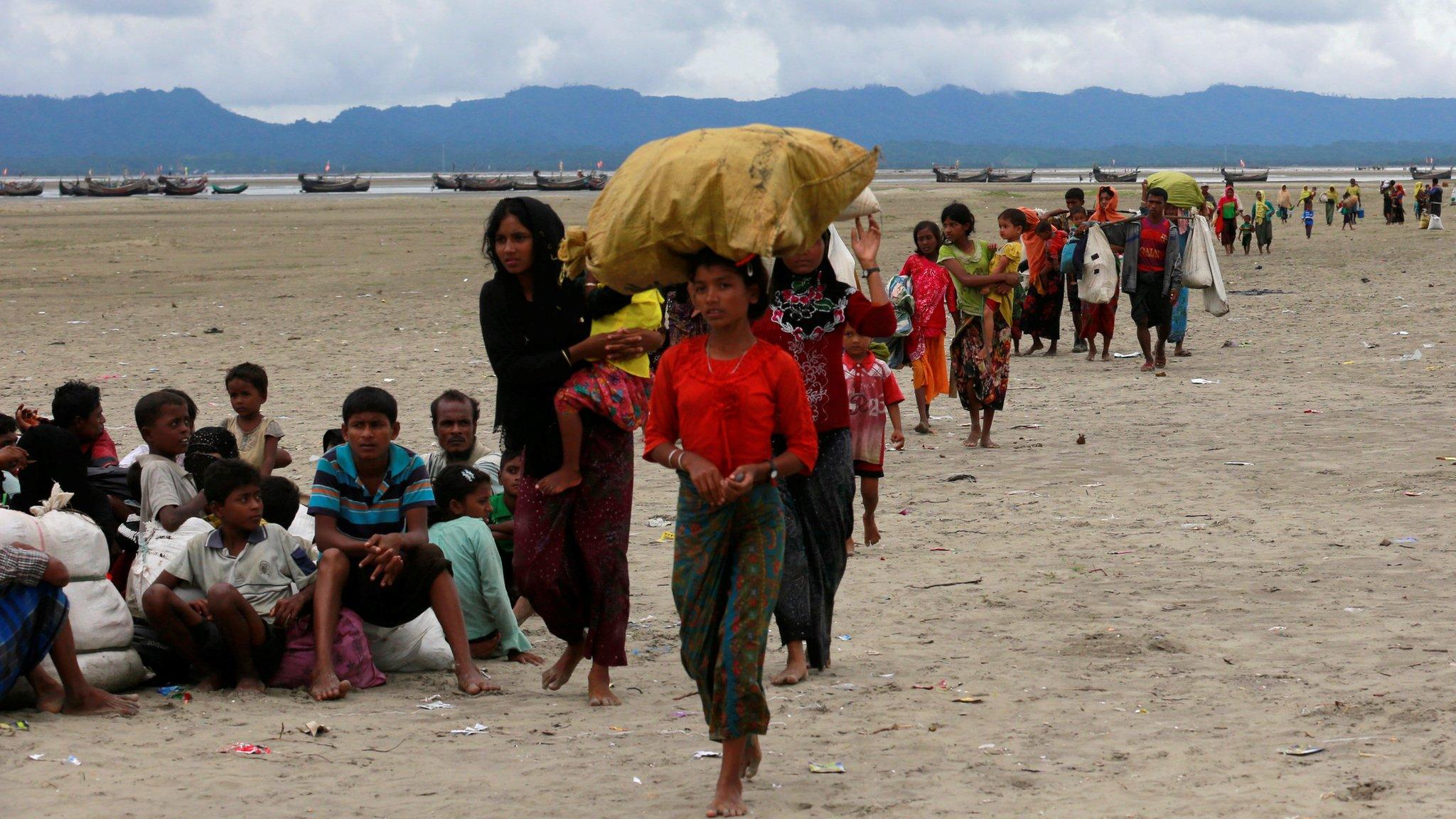
- Published10 January 2017
